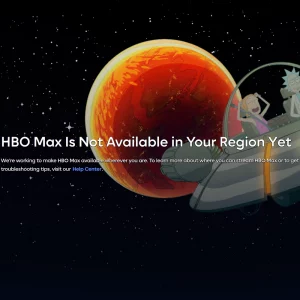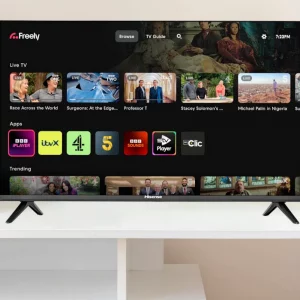Sponsored Links
UPDATE UK Government Pressures Google to Block Piracy Facilitating Websites
Posted: 13th Sep, 2011 By: MarkJ

 The UK governments Secretary of State for the Department of Culture, Media and Sport (DCMS), Jeremy Hunt MP, will tomorrow demand that internet search giant Google take "reasonable steps" in order to make "life more difficult" for websites that facilitate internet copyright infringement (piracy).
The UK governments Secretary of State for the Department of Culture, Media and Sport (DCMS), Jeremy Hunt MP, will tomorrow demand that internet search giant Google take "reasonable steps" in order to make "life more difficult" for websites that facilitate internet copyright infringement (piracy).The move, which according to the FT could eventually be backed up by new legislation in the forthcoming Communications Bill refresh (the first green paper is expected before the end of this year), appears to be the start of a new direction for the governments already traumatised position on copyright enforcement.
Until very recently Hunt's focus has been upon tackling the problem via broadband ISPs and the still highly controversial Digital Economy Act (DEA), which has so far proven to be very difficult (example). Attempts to force internet providers into blocking piracy websites were recently branded as "not effective" by Ofcom (regulator).
DCMS's Secretary of State, Jeremy Hunt, will say tomorrow:
"We do not allow certain products to be sold in the shops on the high street, nor do we allow shops to be set up purely to sell counterfeited products. Neither should we tolerate it online.
We intend to take measures to make it more and more difficult to access sites that deliberately facilitate infringement, misleading consumers and depriving creators of a fair reward for their creativity."
"We do not allow certain products to be sold in the shops on the high street, nor do we allow shops to be set up purely to sell counterfeited products. Neither should we tolerate it online.
We intend to take measures to make it more and more difficult to access sites that deliberately facilitate infringement, misleading consumers and depriving creators of a fair reward for their creativity."
Many piracy sites release the content for free (i.e. not to "sell") and make money on the back of advertising. As a result the UK government also intends to press online ad firms to clamp down upon related sites, which by itself sounds like a far more intelligent approach than the current culture of harassing ordinary consumers; though they still seem intent upon doing that too (the DEA remains).
The government perhaps rightly suggests that any website ruled by a court to be essentially unlawful could see its search ranking penalised (i.e. site becomes harder to find or potentially even removed completely) and related advertising revenues choked.
In fairness Google has already made a number of changes to crackdown on piracy, such as removing file sharing related terms from its Instant Search facility and becoming more aggressive with the removal of piracy links.
Separately Rights Holders, ISPs and the government are still attempting to establish a new Voluntary Code of Practice for blocking any internet website that is deemed to "facilitate" piracy (here). So far nothing has been agreed and the meetings continue.
Paradoxically the government's Secretary of State, whom has often been accused of focusing too much on punishment and not enough on pushing Rights Holders to develop new business models, will also say that, "the government has no business protecting old models or helping industries that have failed to move with the times". Helping Rights Holders hold onto their old models seems like the only thing they ever do.
UPDATE 15th September 2011
In his final speech Hunt also set out plans to start a "cross-industry body", like the Internet Watch Foundation ( IWF ), that could identify piracy websites and choose whether action should be taken by ISPs or Google. A streamlined legal process would then allow some form of court process to make the final decision about whether or not to block etc.
This seems an awful lot like the Voluntary Code that is currently being designed, yet the government suggests that this could now be enshrined in the Communications Act and perhaps applied more generally, which suggests a semi-mandatory solution. So far nothing has been officially agreed.
Jim Killock, Executive Director of the Open Rights Group (ORG), said:
"Jeremy Hunt is pushing new knee-jerk measures to pressurise private bodies into making decisions about who is breaking the law. That amounts to privatisation of justice, which is very dangerous.
Mr Hunt also committed to seeking evidence before making copyright policy. We have today filed an FOI request asking for the evidence he has collected: we are willing to bet that he has not commissioned anything, and yet again, these are unbalanced, lobby-driven proposals."
"Jeremy Hunt is pushing new knee-jerk measures to pressurise private bodies into making decisions about who is breaking the law. That amounts to privatisation of justice, which is very dangerous.
Mr Hunt also committed to seeking evidence before making copyright policy. We have today filed an FOI request asking for the evidence he has collected: we are willing to bet that he has not commissioned anything, and yet again, these are unbalanced, lobby-driven proposals."
Search ISP News
Search ISP Listings
Search ISP Reviews
Latest UK ISP News








Cheap BIG ISPs for 100Mbps+
150,000+ Customers | View More ISPs
Cheapest ISPs for 100Mbps+
Modest Availability | View More ISPs
Latest UK ISP News
Helpful ISP Guides and Tips
Sponsored Links
The Top 15 Category Tags
- FTTP (6768)
- BT (3873)
- Politics (3060)
- Business (2752)
- Openreach (2650)
- Building Digital UK (2503)
- Mobile Broadband (2458)
- FTTC (2139)
- Statistics (2118)
- 4G (2079)
- Virgin Media (2011)
- Ofcom Regulation (1773)
- 5G (1716)
- Fibre Optic (1597)
- Wireless Internet (1591)
Sponsored
Copyright © 1999 to Present - ISPreview.co.uk - All Rights Reserved - Terms , Privacy and Cookie Policy , Links , Website Rules
































